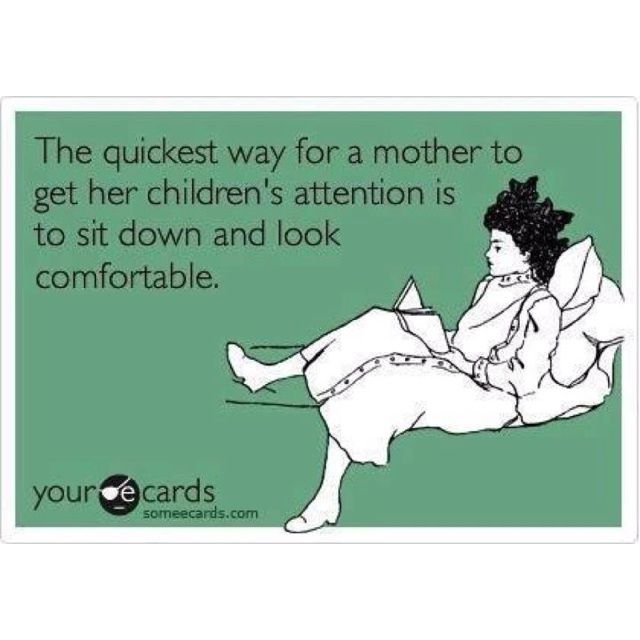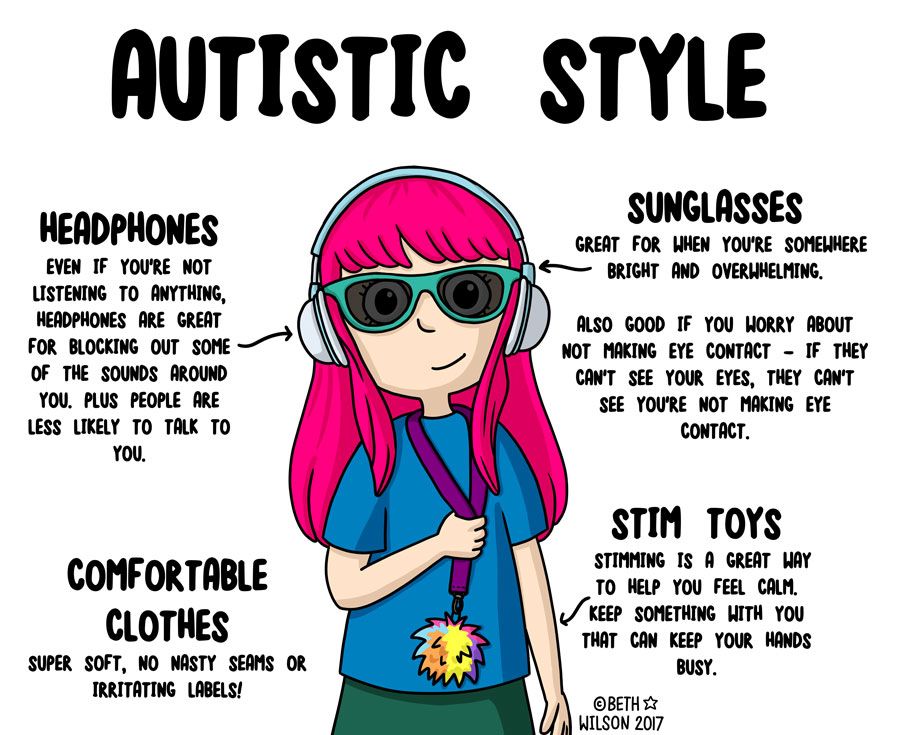I think my husband is bipolar
Common Bipolar Disorder Symptoms in Men
Do racing thoughts make words come flying out followed quickly by extreme bouts of irritability?
Do you quickly go from feeling on top of the world and indulging in risky behavior for days, only the next morning wanting to isolate yourself, having zero desire to eat, and feeling sad and hopeless?
Do you feel like you are on a perpetual roller coaster of feeling slow, burned out, and down for weeks at a time, followed by a big burst of energy where you want to do everything at once and do it right now–whew!
Bipolar disorder was first documented in an article in the mid-1800s by the French psychiatrist Jean-Pierre Falret as “la folie circulaire,” which translates to English as “circular insanity.” He notes the switch in behavior from manic excitement to severe depression.
That phrase remains the main description of bipolar, which is a mood disorder driven by swings between extreme highs and extreme lows. It is far from a diagnosis of insanity, but it does generally mean the circular behavior pattern must be broken to have a productive, balanced life.
In the United States, 2.6% of males ages 13-18 and 2.9% of males ages 18 and older have experienced bipolar disorder, according to a national survey. There are multiple types of bipolar disorder defined by duration and intensity of the mood types, according to the Diagnostic and Statistical Manual of Mental Disorders (DSM-5).
Table of Contents
Bipolar I and Bipolar II Are the Most Common Types With Two Main Differentiators:
- Bipolar I: A person may experience a manic episode of extreme highs lasting around seven days or requiring hospitalization. This may or may not be followed by an extremely depressed period lasting around two weeks.
- Bipolar II: A person may experience a less-intense version of mania called hypomania, which is not as severe as bipolar I. A depressive episode may occur before or after the hypomania. This depressive state can be severe and one condition of bipolar is not more or less serious than another.
- Cyclothymic disorder.
 This type of disorder can occur when the mania or depression episode lasts longer than two years.
This type of disorder can occur when the mania or depression episode lasts longer than two years. - Other: This type of disorder could be rooted in substance use disorder affecting mood or other health concerns.
How Do I Know If I Am (Or My Loved One Is) Bipolar?
Identifying bipolar disorder is very strategic because there are behavioral explanations that first need to be ruled out. Since the disorder is more commonly seen in teenage years than perhaps someone in their 40s, somebody might be inclined to gloss over symptoms as typical teenage behavior.
If the behavior of manic highs continues to be repeated over time with potentially dangerous consequences or depressed periods lasting longer than two weeks, a visit to a medical professional is in order. A routine physical including blood work can rule out other physical contributors and a full mental wellness evaluation can be performed.
Common Signs & Symptoms of Mania
- Showing intense happiness or silliness for a long time
- Having a very short temper or seeming extremely irritable
- Talking very fast or having racing thoughts
- Having an inflated sense of ability, knowledge, and power
- Doing reckless things that show poor judgment
These symptoms may be more manic and an episode may require hospitalization until the person can be stabilized, as in bipolar I.
Common Signs & Symptoms of Depression
- Feeling very sad or hopeless
- Feeling lonely or isolating themselves from others
- Eating too much or too little
- Having little energy and no interest in usual activities
- Sleeping too much
Know the Signs and Symptoms of Bipolar
These symptoms may come before or after a hypomanic episode in bipolar II disorder.
A bipolar disorder diagnosis may be delayed because those closest to the individual didn’t realize the behavior indicated a bigger issue or the first diagnosis of another condition was inaccurate. Pregnancy and seasonal affective disorder might be considered as causes for symptoms.
A mental health professional will determine if a manic or depressed episode has previously been experienced, and will also ask about the individual’s behaviors and experiences over a course of time. A mood-disorder questionnaire with 13 questions is often used as an important diagnostic tool to assess symptom clusters and to avoid misdiagnosis.
In a survey by the National Depressive and Manic-Depressive Association (DMDA), 69% of patients with bipolar disorder are misdiagnosed initially and more than one-third remained misdiagnosed for 10 years or more.
As you learn more about the whys, whos, and whats, it's important to remember that although bipolar disorder is a lifelong condition, you can manage your mood swings and other symptoms by following a bipolar disorder treatment plan. In most cases, bipolar disorder is treated with medications and psychological counseling (psychotherapy).
What Causes Bipolar Disorder?
- Family history as a contributing factor is most prevalent with childhood-onset below the age of 12, similar over onset ages 12-40 years, and falls sharply thereafter. Genetics as a factor remains of interest due to the rate of commonality within generations, but there has not been a direct gene link identified.
- Age of onset is a contributor to delays in adulthood of education, marriage, living independently, maintaining a job, and having children.
 Treatment to manage bipolar at its earliest indications is the most effective manner to achieve adult lifestyle goals.
Treatment to manage bipolar at its earliest indications is the most effective manner to achieve adult lifestyle goals.
How Old Are You Generally When Diagnosed With This Disorder?
For men and women alike, bipolar disorder is most likely to appear in late teens to early 20s and 4.4% of all Americans will have some experience with bipolar during their life. It has been found that the onset of bipolar I began with 5% in childhood, 28% in adolescence, and 53% at peak ages 15-25. Generally bipolar disorder is more common in women than in men.
Men Show Bipolar Signs Earlier Than Women
Two major differences between men and women that have been documented are that men generally display symptoms earlier and are less prone to the depressive episodes of bipolar disorder.
Teens and young adults with bipolar disorder symptoms may think and talk about self-harm or suicide. If someone you know is expressing these thoughts, seek help immediately by calling the National Suicide Prevention Lifeline at 1-800-273-TALK (8255).
Bipolar More Common In Younger-aged Males Than Older Ages
In terms of ages and percentages experiencing bipolar, 2.6% of males ages 13-18 are diagnosed as bipolar, with the most common ages being 16-18.
In men ages 18 and older, 2.9% are diagnosed as bipolar, with the most common occurrence of 4.7% for ages 18-29, dropping exponentially in older age groups.
The number of people in their 30s to early 40s is 3.5% experiencing bipolar, dropping to 2.2% of those ages 45-59. Fewer than 1% of those older than 60 experience bipolar.
Bipolar Disorder Can Co-occur With Other Disorders
Young people with bipolar disorder can have several problems at the same time. These include:
- Misuse of alcohol and drugs
- Attention-deficit/hyperactivity disorder (ADHD)
- Anxiety disorders
How Can Bipolar Signs & Symptoms Affect Daily Life?
If left untreated, some side effects that come with bipolar may affect a person’s daily life:
- Job or education responsibilities
- Inability to care for dependents or self
- Financial stress, possibly bankruptcy, eviction, or car repossessed
- Loss of social connections as friendships suffer
- Dysfunctional family relationships displaying codependency, resentment, family estrangement, or divorce
If a person is diagnosed with a severe impairment that impedes their ability to work, it may make them eligible for disability benefits.
How Is Bipolar Disorder Treated?
Treatment helps many people, even those with the most severe forms of bipolar disorder. Doctors treat bipolar disorder with medications, psychotherapy, or a combination of treatments.
Medications
Certain mood stabilizers and atypical antipsychotics can help control the symptoms of bipolar disorder and several may be tried in the process before the right ones are identified for your chemical makeup.
Mood stabilizers such as lithium can help prevent mood episodes or reduce their severity when they occur. Lithium also decreases the risk of suicide. Additional medications that target sleep or anxiety are sometimes added to mood stabilizers as part of a whole treatment plan.
Because of the chemical makeup of these medications, it is extremely dangerous to abruptly stop taking them without a doctor’s supervision. Serious side effects may occur. If you feel you may want to go off your medication, it is important to do it with your doctor’s guidance to carefully reduce the medication safely and appropriately.
Psychotherapy With a Doctor
Psychotherapy (sometimes called “talk therapy”) is a term for a variety of treatment techniques that aim to help a person identify and change troubling emotions, thoughts, and behaviors. Psychotherapy can offer support, education, skills, and strategies to people with bipolar disorder and their families.
Therapy with family can also be beneficial as the symptoms of bipolar disorder can strongly affect the overall dynamics of a family’s day-to-day function.
So You’re Home After Treatment, Now What?
There is a constant effort toward researching bipolar disorder causes and treatments, including by the National Institutes on Mental Health. For now, knowing it can be managed is important to keep in mind.
Whether you are managing your bipolar disorder or supporting someone living with it, it can successfully be built into day-to-day living. You will already have skills in place upon leaving an outpatient treatment program; treatment is a start but recovery takes time.
Continue with the following:
- Keep medical and therapy appointments, and talk with the provider about treatment options.
- Take all medicines as directed.
- Structure activities: keep a routine for eating and sleeping, and make sure to get enough sleep and exercise.
- Recognize your mood swings and approach them with methods learned in treatment. Keep a chart recording onset, length, and frequency of symptoms.
- Ask for support with treatment and daily life experiences.
Remember, bipolar disorder is a lifelong illness, but long-term, ongoing treatment can help control symptoms and enable you or your loved one to live a healthy life.
How Can I Find Treatment to Manage Bipolar Disorder?
Struggling with mental illness is extremely difficult. Not only does it impact an individual on an emotional level, but it can also leave them with several physical complications. At SUN Behavioral Health, our master’s-level clinicians provide care for these specific challenges surrounding mental illness.
Millions of Americans suffer from depression, anxiety, panic attacks, and other conditions. It can be a lonely, confusing, and emotional experience but you are not alone. If you or someone you love is struggling, SUN Behavioral Health in Houston can help.
At SUN, we’ve created a caring, healing environment and will be there for every step of your journey to recovery. Please call us today at 713-796-2273 to help you, your family, and your loved one.
Bipolar Treatment in Houston
If you or a loved one is suffering from bipolar disorder, the team at SUN Behavioral in Houston can help you recover. Call us today!
713-796-2273
FAQs:How Can I Tell If My Husband Is Bipolar?
Living with someone gives you a unique perspective on their particular personality. Someone may have a seemingly odd trait, like not being able to go to bed unless they unload the dishwasher first. This may be quirky or annoying, but not harmful or concerning. On the other end of the spectrum, if they have a bad day at work they may find comfort in putting on some comfy clothes and heading straight to bed. Again, this behavior is not hurting anybody or a big cause for concern.
On the other end of the spectrum, if they have a bad day at work they may find comfort in putting on some comfy clothes and heading straight to bed. Again, this behavior is not hurting anybody or a big cause for concern.
If your husband answers the phone and interrupts you by talking a mile a minute and bouncing around several topics, without ever finding out why you called, it is a bit more concerning. If you notice he’s unable to relax with a movie together and keeps puttering around the house or heading out on errands with a lot of talking throughout, lasting for several days, pay attention. If this activity is inevitably followed by days in bed and crying jags, only to have it all continue again with no real middle ground, a visit to a professional could be in order. If commitments aren’t being met, bills go unpaid, and you’re constantly wondering what you’re going to see on the other side of the door when you walk in the house, your voice would be helpful at that appointment to provide an overall picture for your doctor.
What Are The Common Warning Signs Of Bipolar Disorder?
Common warning signs of bipolar disorder are when around three or more of the manic symptoms and three of the depressed symptoms are seen during an episode. Mania symptoms include racing thoughts, risk-taking, extreme agitation, little need for sleep, easily distracted, jumpy, or heightened sense of well-being.
What Can Be Mistaken For Bipolar Disorder?
Unipolar depression is the most common disorder to be mistaken as bipolar. It has the same symptoms as bipolar, with a few exceptions. Bipolar disorder has more episodes of depressed occurrences and can also tip into the mania element. Therefore misdiagnosis affects treatment, avoiding medications that should be used to manage bipolar disorder effectively.
Is My Spouse Bipolar? - Free by the Sea
October 22nd, 2020 | By Dr. Richard Crabbe
Jump to Section
Is My Spouse Bipolar?
In any relationship, there are both high times and road bumps. However, when someone you love is bipolar, emotions can run high and low in a sporadic manner. It can be a stressful and confusing situation when your significant other suffers from bipolar disorder. If you’re currently asking yourself, “is my spouse bipolar” due to some of the challenges he or she is facing, it’s important to know more about the disorder and how you can help.
However, when someone you love is bipolar, emotions can run high and low in a sporadic manner. It can be a stressful and confusing situation when your significant other suffers from bipolar disorder. If you’re currently asking yourself, “is my spouse bipolar” due to some of the challenges he or she is facing, it’s important to know more about the disorder and how you can help.
Bipolar disorder affects millions of people every single year, many of whom are wives and husbands to others. Understanding bipolar disorder and helping your spouse is a great way to build a strong relationship and improve the situation. While it may be complicated to predict, there are things you can do to help your spouse and yourself.
Let’s take a look at bipolar disorder and the telling signs associated with it. It’s important that you and your spouse are not alone in this journey, Free by the Sea has your back. Let us be your helping hand towards a happier and healthier relationship later on.
A Closer Look at Bipolar Disorder
Bipolar disorder is a mental disorder that occurs when a person has extreme mood changes.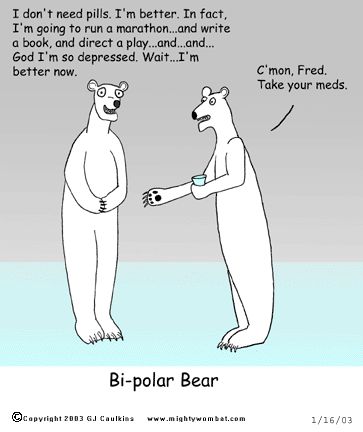 Typically, people with bipolar disorder will switch back and forth emotionally. They may switch from being cheery and happy to aggressive or depressed. This switch back and forth can be stressful to manage and cope with.
Typically, people with bipolar disorder will switch back and forth emotionally. They may switch from being cheery and happy to aggressive or depressed. This switch back and forth can be stressful to manage and cope with.
Bipolar disorder runs through families and continues to plague millions of people every year. The cause of the bipolar disorder is unknown as of right now but it can be managed with the right level of treatment. Let’s take a closer look at the two types of bipolar disorder and their effects.
Mania and Hypomania
Another thing that should be addressed is mania and hypomania. These episodes are major indicators of potential bipolar disorder in your spouse or loved one. Both hypomania and mania have the same symptoms (but mania is more intense), both involve the following behaviors:
- Decreased need for sleep
- Extremely talkative
- Easily distracted
- Poor-decision making
- Strangely jumpy, energetic, and wired
Manic Depressive Episodes
Another element of bipolar disorder is manic depressive episodes. A manic depressive episode can cause many issues in a person’s life. You may be able to notice clear difficulty in your spouse’s day-to-day responsibilities, work, or school. Symptoms of a manic depressive episode include:
A manic depressive episode can cause many issues in a person’s life. You may be able to notice clear difficulty in your spouse’s day-to-day responsibilities, work, or school. Symptoms of a manic depressive episode include:
- Fatigue
- Thoughts of suicide
- Inability to concentrate
- Insomnia or sleeping too much
- Restlessness and slowed behavior
- Loss of interest and pleasure in almost all activities
- Extreme weight loss (when they’re not dieting) or weight gain
- Feeling of hopelessness, emptiness, sadness, and overall depressed
Bipolar I vs. Bipolar II
There are two primary types of bipolar disorder, bipolar I and bipolar II. It’s important to know the difference so you can have an idea of what your spouse may be going through. Look out for these signs in your spouse so you can get the right treatment and stay informed.
Bipolar I
Bipolar I is considered to be a more severe version of bipolar disorder. It typically includes manic and unpredictable episodes that include:
It typically includes manic and unpredictable episodes that include:
- Impulsive behavior (usually with severe consequences)
- Hallucinations, paranoia, or delusions
- Hospitalization for safety
These manic episodes usually have the person seeking pleasurable activities without any care or regard for the consequences. They may indulge in anything from gambling to using drugs. It is important to be aware of these signs, especially if it’s a case of undiagnosed bipolar disorder.
Bipolar II
Bipolar II is not as severe as bipolar I and typically involves a person experiencing hypomanic episodes. These episodes include abnormal or out-of-character behavior which includes:
- Rapid speech behavior
- Lack of sleep (decreased need to sleep)
- Extreme energy and drive
When someone you love is bipolar and experiences hypomanic episodes, they may intensely pursue sex with you or other people. Since these episodes involve an energetic spouse, they may stay up all night to discuss things or ideas.
Is My Spouse Bipolar?
In some cases, bipolar disorder can be the cause of tension and troubles in a relationship among other problems. However, you and your spouse may not be aware that bipolar disorder is the root of the issue. Undiagnosed bipolar disorder can cause a series of issues with you or your partner without even knowing it.
It’s important to be aware of the signs of possible bipolar disorder in you or your spouse. Look out for shifts between extreme periods of sadness and periods of excessive excitement and energy. Let’s take a look at some of the other symptoms associated with bipolar disorder:
- Delusions
- Difficulty concentrating
- Rapid speech and thoughts
- Impulsive and dangerous behavior
- Risky and irresponsible driving choices
- Heightened self-confidence and optimism
- Extreme money spending and shopping sprees
- An over-the-top view of their abilities and qualities
Bipolar disorder in men and in women may differ. Depending on the situation, it may be necessary to get help. If you notice any of these symptoms in your spouse, Free by the Sea may be able to help you. Over time, more intense cases of bipolar disorder can become dangerous and risky, so it’s important to act fast.
Depending on the situation, it may be necessary to get help. If you notice any of these symptoms in your spouse, Free by the Sea may be able to help you. Over time, more intense cases of bipolar disorder can become dangerous and risky, so it’s important to act fast.
Is My Husband Bipolar: Bipolar Disorder in Men
Bipolar disorder can affect men and women differently. For men, in particular, manic episodes tend to be more violent and aggressive. Reckless behavior and acting out are not uncommon in men with bipolar disorder. These impulsive and risky behaviors are heightened during these manic episodes.
Additionally, men are also more likely to turn to substance and drug abuse during manic cycles. They tend to self-medicate more than women do. It is also no surprise that alcohol and substances only make these symptoms worse in men. This can also lead to co-occurring disorders – where a person is struggling with both drug addiction and mental illness.
Is My Wife Bipolar: Bipolar Disorder in Women
Women are also affected by these manic episodes in a unique way. There are certain factors in women that may affect the shifts between depressive states and energetic episodes. Changing hormones during their menstrual cycle, menopause, and pregnancy can all dictate how severe a person’s bipolar disorder may be.
There are certain factors in women that may affect the shifts between depressive states and energetic episodes. Changing hormones during their menstrual cycle, menopause, and pregnancy can all dictate how severe a person’s bipolar disorder may be.
With both men and women, it’s important to be aware of these signs. While certain factors may increase the severity of the bipolar disorder, it is still a condition that needs treatment. Symptoms can continue to worsen and certain behaviors may lead to injury and death in the long run.
Making a Bipolar Relationship Work
If you are concerned that your husband or wife is dealing with bipolar disorder, there are a couple of things you can do to help. While relationships like this can be sporadic and stressful, it is not impossible to get help for a better future.
One of the most important things to keep in mind is that you are not alone. It is completely possible and achievable to make a bipolar relationship work. Getting the proper treatment and being a supportive force in your spouse’s life can make a world of difference.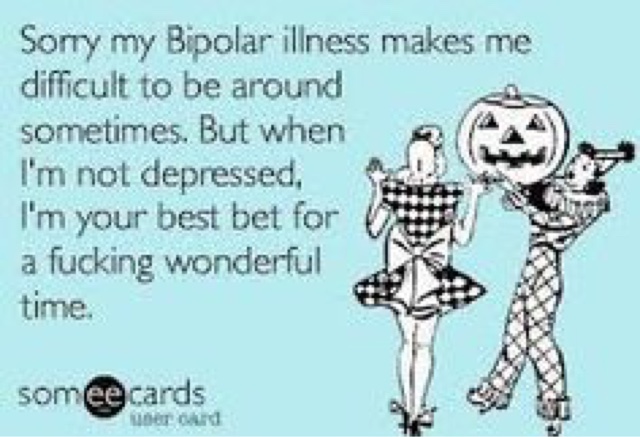
Treating Bipolar Disorder
The first order of business is to get your spouse the proper treatment. Bipolar disorder is best treated by professionals in a trusted facility like Free by the Sea. You and your spouse don’t have to go through this process alone. While bipolar disorder is a lifelong illness, there are still options to manage its symptoms and episodes. Let’s take a look at some of the common ways to treat bipolar disorder.
Medication Options
Certain medications can help tame some of the symptoms of bipolar disorder. Usually, these medications include mood-stabilizers and antipsychotics. Different medications can also target certain aspects of bipolar disorder like depression and sleep patterns. Consult with your doctor to see if medication is the right choice for you or your spouse.
Therapy Options
Psychotherapy is one of the most common forms of treatment for cases of mental illness and drug addiction. What some of these therapy options aim to do is completely change how you think and how you view yourself.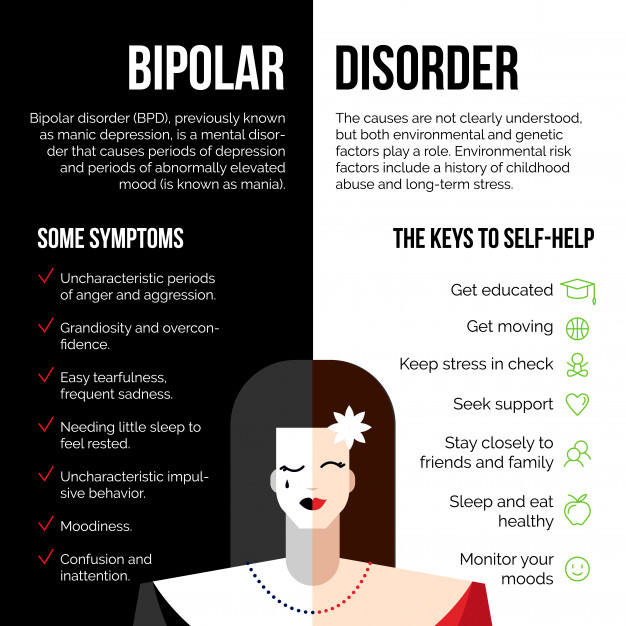 These individualized therapy sessions can be eye-opening and very effective in treating cases of bipolar disorder.
These individualized therapy sessions can be eye-opening and very effective in treating cases of bipolar disorder.
Options like cognitive-behavioral therapy (CBT) can offer guidance towards change. CBT helps a person change their thought processes and behaviors. Family-centered therapy is also another great option for you and your spouse who’s dealing with bipolar disorder. Free by the Sea offers a variety of therapy options just for you and your spouse.
Other Options To Try at Home
Treatment can come in other forms as well. Practicing regular exercising and anaerobic exercises can help depression and anxiety. Additionally, exercise can promote a better sleep schedule. Couples counseling is also an option as well, continuing to improve and nurture your relationship can be very beneficial.
Keeping a life chart of your mood changes and swings can be very useful for you and your spouse. Over time, this information can become useful in seeing patterns during and after treatment. This info can also be shared with your therapist for improved treatment.
This info can also be shared with your therapist for improved treatment.
Get Help Today
When someone you love is bipolar, it can be a tough and stressful experience for both you and them. Fortunately, you aren’t alone in your struggle. Let Free by the Sea help you towards a better life. We offer a variety of treatment options for drug addiction and mental health disorders like bipolar disorder. Contact us today to learn more about our resources and treatment options.
Dr. Richard Crabbe
Dr. Richard Crabbe joined our team in 2019 as our psychiatrist and medical director. He attended the University of Ghana Medical School where he became a Medical Doctor in 1977. From 1978 through 1984, he was a medical officer in the Ghana Navy and provided a variety of services from general medicine to surgeries. He received his Certificate in General Psychology from the American Board of Psychology and Neurology in 2002.
Featured Blogs
Avoidant Personality Disorder vs. Social Anxiety
Social Anxiety
Is My Spouse Bipolar? In any relationship, there...
Psychoeducational Group Therapy for Mental Health and Substance Abuse
Is My Spouse Bipolar? In any relationship, there...
Skills Development Group Therapy for Mental Health and Substance Abuse
Is My Spouse Bipolar? In any relationship, there...
How to Help an Alcoholic Mother
Is My Spouse Bipolar? In any relationship, there...
Peer Pressure and Underage Drinking
Is My Spouse Bipolar? In any relationship, there...
Call Us
People with bipolar disorder tell how to properly support them
March 30 is celebrated as Bipolar Day around the world. With this disease, it is important to monitor mood changes, which can be difficult to do alone. The founder of the Bipolar Association, Masha Pushkina, has collected stories of people who are helped by treatment partners.
At the initiative of public organizations bringing together scientists, doctors and activists, every year on March 30, World Bipolar Day is celebrated. The date chosen was the birthday of Vincent van Gogh, an artist who, according to researchers, was the embodiment of a "bipolar genius."
With bipolar disorder, a person lives either in a state of high emotional uplift and excitement (mania), or in depression. According to world statistics, about 2% of people suffer from bipolar disorder in various forms. This means that in Russia there are at least three million bipolar people - this is about half of St. Petersburg.
In most cases, this condition responds well to medication. But, unfortunately, many do not seek help or do not know how to find it. Without treatment, the disease progresses and ultimately leads to sad consequences: loss of family, job, disability in general, and in almost every seventh case, suicide.
These consequences can be avoided. The peculiarity of bipolar disorder is that the onset of remission depends not only on the doctor and medications, but also on the behavior of the patient himself. Very often, bipolar people provoke seizures "with their own hands." The mood of people with BAD (bipolar affective disorder. - Note ed. ) is very unstable, the balance is fragile, and mania or depression can be “started” in dozens of ways: the psyche is easily shaken by psychoactive substances, alcohol, lack of sleep, too intense work, travel and even love. So, a short time after the next course of treatment with powerful drugs, the person again ends up in the hospital. And each new attack reduces the chances of a long remission, affects social status, and even more painfully - self-esteem.
Very often, bipolar people provoke seizures "with their own hands." The mood of people with BAD (bipolar affective disorder. - Note ed. ) is very unstable, the balance is fragile, and mania or depression can be “started” in dozens of ways: the psyche is easily shaken by psychoactive substances, alcohol, lack of sleep, too intense work, travel and even love. So, a short time after the next course of treatment with powerful drugs, the person again ends up in the hospital. And each new attack reduces the chances of a long remission, affects social status, and even more painfully - self-esteem.
The experience of people with mental disorders around the world has proven that you are much more likely to cope with difficulties when you are supported by people who understand your problems and condition, but do not look at you as a patient. As practice shows, such a person can be not only a partner or close relative. An old friend, and even a person with whom you have never met in person, can help you get through the darkest times. Masha Pushkina, especially for Afisha Daily, spoke with several bipolar people about those in whom they found their support. The result is a story not about illness, but about friendship and trust, which can defeat even madness.
Masha Pushkina, especially for Afisha Daily, spoke with several bipolar people about those in whom they found their support. The result is a story not about illness, but about friendship and trust, which can defeat even madness.
Yana, 31 years old
Housewife, collects books and is fond of confectionery
Purposefully, I didn't find out about the ways of support anywhere, everything turned out quite naturally. I have been sick for 15 years. The first person who looked after me was my best friend, and now it's my husband.
When my hypomania (a mild degree of mania, which is characterized by a constantly high mood. - Approx. ed. ) accelerated into a full-fledged mania (this state is also characterized by a one-sided attraction to some topic, sometimes accompanied by delirium. - Note ed. ), it became clear that I needed to be looked after. A friend began to pay attention to repetitive patterns of behavior in one phase or another, and we decided together to find out what helps in such cases. I think my friend was afraid to take responsibility for my condition, but she turned out to be generous and selfless. When I got married, a friend passed this knowledge on to her husband, and he already supplemented it, based on his own experience. The husband initially knew with whom he connects his life. He says it didn't scare him.
I think my friend was afraid to take responsibility for my condition, but she turned out to be generous and selfless. When I got married, a friend passed this knowledge on to her husband, and he already supplemented it, based on his own experience. The husband initially knew with whom he connects his life. He says it didn't scare him.
I have obsessions during my manic episodes. My husband does not argue with me at this time, but he also does not feed them, trying to redirect my stormy energy in a different direction. You can’t argue, because the result will be the opposite: I will finally get stuck on the idea, I will consider that I must prove it at all costs, even if the whole world is against me, and there are enemies and conspiracies around. If this does not help, the husband agrees to discuss all these things, but at the same time tries to slow down their implementation by offering to draw up a specific and detailed plan. Sometimes it takes me a long time.
For example, I always want to move somewhere. Right now, and why aren't we packing our things yet? My husband tries to make me write down what are the pros and cons of different cities, what attracts us to them. As a result, I sit for hours on different forums, make lists, think about how we will arrange our life, calculate the budget for different countries of the world. There is also a manic passion for travel, but after preparation, we usually implement these plans. And many years ago, in a fit of mania, I bought an apartment - with a mortgage, with hellish payments. Then it took a long time to resolve this situation, but, fortunately, everything worked out well.
Right now, and why aren't we packing our things yet? My husband tries to make me write down what are the pros and cons of different cities, what attracts us to them. As a result, I sit for hours on different forums, make lists, think about how we will arrange our life, calculate the budget for different countries of the world. There is also a manic passion for travel, but after preparation, we usually implement these plans. And many years ago, in a fit of mania, I bought an apartment - with a mortgage, with hellish payments. Then it took a long time to resolve this situation, but, fortunately, everything worked out well.
My husband began to chart my mood. I also manage it, and we check the results so that they are objective. Quarrels due to the fact that the husband takes on the role of the elder often arise in the manic phase (never in depression). Then I become very suspicious, any attempts at control cause rage. But now the husband has learned from experience, so he does not react to attempts to unleash a conflict. With obvious attacks of rage and auto-aggression, he uses holding therapy (long strong hugs. - Note ed. ). We have seen this in autistic children, this is how their parents influence them.
With obvious attacks of rage and auto-aggression, he uses holding therapy (long strong hugs. - Note ed. ). We have seen this in autistic children, this is how their parents influence them.
When I'm depressed, he doesn't comfort me because it's pointless, but he tries to give reasonable arguments that this period has always ended and this time will also pass soon. We look at mood charts for the past months, discuss the duration of the attacks: two weeks have already passed and, judging by past experience, it should get better in a couple of weeks.
Such support from the husband helps in many ways. When I was being treated by two doctors, taking all the medicines, I didn’t have such support, everything was very bad. Over time, I stopped disappearing from home in a manic state and inflicting serious injuries on myself. All my super-ideas remain on paper in the form of graphs and tables, I don’t even have time to start putting them into practice, so that later I don’t have to deal with the consequences with the whole family.
Alisa, 27 years old
Biologist
To be honest, I don't always find understanding from my healthy environment, I often faced condemnation, devaluation of problems. But from a person who has a similar experience, you won’t hear “don’t invent”, “you can’t feel so bad”, “take a walk and it will pass”.
It just so happens that my best friend also suffers from bipolar disorder. I did not look for support in specialized communities where patients communicate, we met by chance. My friend is much older, he has much more life experience, and he was able to become a real mentor for me. Not once did his actions worsen my condition - I hope that he can say the same about me.
When I'm on the rise, I feel uncomfortable when he tries to slow me down and reduce my passions. But as soon as this state passes and I again take a sober look at the situation, each time I thank him for trying to stop the revelry and disgrace. My friend himself is currently not being treated, but he never imposed his position on me, and when I turn to doctors, he supports me in this.
I told the doctor about this source of support - he is all for it. Before meeting a friend, I had suicidal attempts, but during the entire time of our communication I never tried to say goodbye to life. When you know that there is a person who will understand everything and share warmth (while even my own family repels me), that there is a place where you can come in any condition and where they will accept me without unnecessary questions and teachings, this is a source of great strength. and hope.
When I was expecting my second child, I was depressed. My husband did not yet fully understand the features of the disease and did not want to admit obvious things - this added problems, and my emotional state became extremely difficult. It seems that only thanks to the participation of my friend, I did not do anything to myself and successfully endured the pregnancy. The child was named after him.
Sergey, 49 years old
Freelancer
At the height of the depression, I was looking for any available support and ended up in an online group of anonymous debtors (people who have taken on large loans). One of the participants drew attention to my condition and said that I urgently need medical help. Despite the fact that she lives in the USA, we began to communicate regularly via Skype. Olga literally brought me to the hospital and helped me prepare for the treatment.
One of the participants drew attention to my condition and said that I urgently need medical help. Despite the fact that she lives in the USA, we began to communicate regularly via Skype. Olga literally brought me to the hospital and helped me prepare for the treatment.
Americans are a pragmatic people, many young and healthy people have folders with wills and instructions in case of their death. They also approach mental difficulties calmly and thoroughly. It is common practice for the patient to draw up detailed instructions in advance. In the United States, there is a practice of issuing Treatment Agreements for people with mental illness (Treatment Contract). This document is needed so that family, friends and doctors recognize the symptoms of deterioration in time and take into account your experience and wishes in the treatment. Typically, such a document contains: a list of trusted people; signs of a normal state; signs of an approaching episode; symptoms of mania and depression; actions that trusted people should take to help a person get better and keep him from destructive acts; plan of action in case of an emergency (for example, a suicide attempt). who and what will be done in case of his hospitalization, so that he can be treated without anxiety for household chores.
who and what will be done in case of his hospitalization, so that he can be treated without anxiety for household chores.
In a period of severe depression, there is a struggle inside a person between the craving for death and the desire to live - and many external things can outweigh in one direction or another. Every clue is important to help you get out. It is very difficult for one to cope with all this.
I madly didn’t want to go to the hospital and wouldn’t have made up my mind myself, until the last I hoped that somehow everything would go away on its own. But under the supervision of a friend, I drew up a preparation plan: warn the customer at work, arrange to look after my cats. Reported to her about every step. But then he could no longer simply “escape” [from hospitalization], because he felt obliged to both her and the doctor. During depression, one's own life has no value, but the people dear to me, the promises made to them, do.
At the most difficult moment, Olga became my “outer brain”, which told me what to do when I didn’t understand anything myself. After I was discharged from the hospital, I turned to four friends for support. Usually we call each other once a week, I tell what my condition is. It is important not only to chat online, but also to hear the voice, you can understand a lot from it. Friends immediately pay attention, if I suddenly disappear and stop calling, then something is wrong.
After I was discharged from the hospital, I turned to four friends for support. Usually we call each other once a week, I tell what my condition is. It is important not only to chat online, but also to hear the voice, you can understand a lot from it. Friends immediately pay attention, if I suddenly disappear and stop calling, then something is wrong.
I think it is possible to find such a person if you set yourself such a goal. Take a closer look at people in support groups, religious or other communities - those who understand what compassion and mutual assistance are. This must be an internally mature person, ready to take responsibility for you in a difficult situation. If this person has similar problems, then he will better understand your experiences. For this reason, relatives are far from always suitable: they themselves can panic, seeing how bad you feel, choke you with their anxiety, overprotection.
It is necessary to establish the frequency of communication and observe it. And of course, in no case should you parasitize on someone else's kindness. The support system works when you yourself take responsibility for your life, and do not outweigh it completely on another.
And of course, in no case should you parasitize on someone else's kindness. The support system works when you yourself take responsibility for your life, and do not outweigh it completely on another.
Anna and Valeriya, 21 years old
Students
Anna: After a major depressive episode four years ago that almost ended in a suicide attempt, I started looking for information on [support]. I managed to find a guide in English for relatives and friends on how to behave with such a person. I have sent this list to all my friends so that they have an idea of what is happening to me. For the past few years, Lera has been monitoring my emotional state on a daily basis, and if, in her opinion, it goes beyond the norm, she tells me about it. Lera just asks every day how I'm doing, and if she sees that I'm reacting strangely, she wonders if something happened. At first, it was very difficult, because, in principle, I did not like to regularly share personal experiences.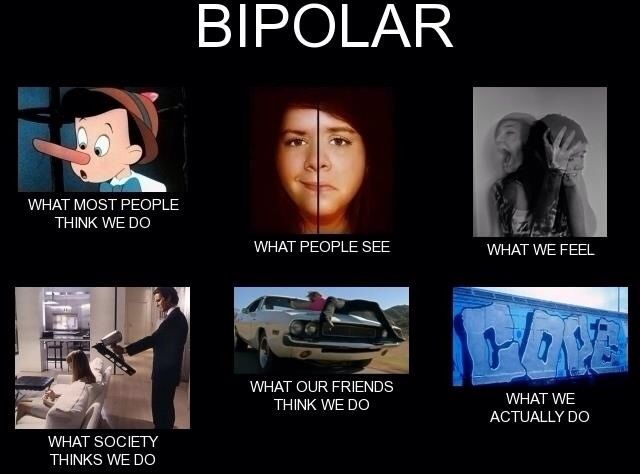 But by regularly receiving feedback, I can imagine the dynamics: do the pills help, how long do the side effects last, does the depressive phase go into a moderate and severe degree, do I lose my critical thinking during hypomania.
But by regularly receiving feedback, I can imagine the dynamics: do the pills help, how long do the side effects last, does the depressive phase go into a moderate and severe degree, do I lose my critical thinking during hypomania.
Valeria: We gradually established a very trusting relationship. Anya studied the topic of bipolar disorder up and down, and I read the articles that she sent me. The diagnosis did not change anything for me, because it remained the same. After that, we already discussed some formalities (for example, who to call in case of an emergency).
Anna: I asked Lera to watch for hypomanic manifestations in which I lose an adequate assessment of my actions: impulsive night walks, alcohol begin.
Valeria: My friend is a very responsible and conscious girl who takes care of herself, her health and her wallet. Before buying something expensive, she asks for my advice - and then we are already sorting out the situation. We can entrust accounts to each other and not worry. I also know where and to whom to run in cases of exacerbation.
We can entrust accounts to each other and not worry. I also know where and to whom to run in cases of exacerbation.
Anna: I react badly to prohibitions and reminders of illness. Yes, I periodically have to turn to relatives for help, change treatment or take long breaks, but I expect mutual respect so that they don’t look at me through the prism of the disease.
When the mood is unstable, harsh phrases like “the disease speaks in you”, “these are not your real emotions” cause persistent rejection, even when they are true. The line between accepting a loved one's illness and identifying him with a diagnosis for healthy people is extremely thin. Therefore, those who were able to grope it deserve great respect.
Anna: In the last year, I go to see the doctor with my parents. When the doctor notices that I may not be able to do it alone, she duplicates the instructions and advice for them. I, in turn, am a friend. The doctor has repeatedly emphasized that the change of episodes is more noticeable from the outside.
Valeria: We don't have any kind of hierarchy in relationships, so there is no pressure when one makes decisions for another. This is not eating each other's emotional resources, but complementing and supporting.
Anna: The main danger in a relationship with a person with a serious illness is to fall into codependency. This format is equally bad for both the "controller" and the "subordinate". Unfortunately, I have been in such relationships before. It is worth maintaining mutual respect and treating each other as equals. Illness should not dominate a relationship. In difficult episodes, it temporarily comes to the fore, but you should always remember that you are not a disease.
Anna: I have memory problems: I don't remember some episodes. In such cases, I can ask Lera for help. If you remember the last weeks, then these are regular reminders to call the doctor. In mixed episodes, this becomes an acute problem, because I can suddenly change my mind or forget. Against the backdrop of a severe episode, I may develop psychosis, and this is the most dangerous thing in the disease. Thanks to our format, I manage to avoid such exacerbations almost always.
Against the backdrop of a severe episode, I may develop psychosis, and this is the most dangerous thing in the disease. Thanks to our format, I manage to avoid such exacerbations almost always.
The advantages of observation from a loved one are an early response and the fact that he knows the patient's usual behavior very well and can notice even small changes. The main disadvantage is that normal friendly communication risks turning into constant monitoring of symptoms. Not every mentally healthy person is able to remain within the boundaries of reason.
It is important to agree in advance, before an attack, what is an undoubted sign of a worsening condition (for example, persistent insomnia), and what you do not need to pay special attention to (for example, loud indignation at something that you do not like). In a difficult situation, often a loved one begins to behave not as an equal, but as a “healthy” and “knowledgeable”. Not all relationships stand this test.
There is also a variant of "buddy" (when two people with mental disorders look after each other. - Note ed. ) - it is good precisely because it is the true request of the patient and more equal relations without mixing roles. But I don't know the buddy support system.
- Note ed. ) - it is good precisely because it is the true request of the patient and more equal relations without mixing roles. But I don't know the buddy support system.
To choose a person you can rely on in a critical situation, take a closer look at your surroundings. Above all, a high level of trust is needed. Your assistant should be open to nonjudgmental and open dialogue and at the same time emotionally stable and resistant to stress.
Support is essential for every person - very often we as mental health professionals need it. And with bipolar disorder, this problem is especially acute. At the initial stages, those closest to you often ignore the presence of the disease, and friends advise you to either "pull yourself together" or, conversely, "relax", sometimes with the help of alcohol. When it becomes obvious to everyone that the “condition” will not go away on its own, urgent hospitalization is already required. The saved patient receives the "stigma".
Psychiatrists then make it the responsibility of the uninitiated next of kin (parent or spouse) to monitor any changes in the patient, and they really try to do so. At the level of "laughing out loud - hypomania has begun, upset - depression." As a result, psychiatrists begin to treat quite normal human emotions based on complaints from relatives... and the circle closes.
For this to change, mental health literacy must play a major role. Relatives, in order to be able to help, need to understand well what is happening with a loved one. In many, including state clinics, groups for training relatives either already exist or are being created.
The support of loved ones in case of emergency is especially important. In deep depression or mania, a person is not able to independently control his behavior, this decision is made by relatives, sometimes without his consent. In the case of bipolar disorder, this should be the last option when all others have been exhausted.
BAD - bipolar disorder. What it's like to live with bipolar disorder, how people with bipolar disorder feel - the story of a person with bipolar disorder - March 30, 2022
In bipolar disorder it is difficult to understand where the personality ends and the disease begins
Collage: Philip Sapegin / E1.RU
Share
M a disorder that affects an average of five to eight people out of a thousand. There are many myths about him, including quite ridiculous ones. On Bipolar Affective Disorder Awareness Day, Ekaterina Bormotova, a journalist from the Network of City Portals, tells how to live with this diagnosis .
A few years ago I was diagnosed with a “fashionable” then already diagnosis - F31. Translated from medical into Russian, this means "bipolar affective disorder." Many thanks to the doctors for choosing such a pleasant term for the name of my illness, because earlier, back in Soviet times, it was called "manic-depressive psychosis" - you must admit, it's scary.
But the pleasant term has a downside: few people take the illness with that name seriously. “Manic-depressive psychosis” sounds impressive, and bipolar is something about teenagers who have not decided on their mood. At least that's how it is perceived by many. And it didn't help at all when I was diagnosed. Not at all.
I was 27 when I first came to the regional psychiatric hospital. She called an ambulance herself: I was at home alone and felt that now I can do something with myself. My consciousness seemed to split in two: some part of me wanted to end this life, but the other part understood that it should not do this. It's very scary. Imagine that you are locked in a room with a killer and must persuade him not to kill you. Now imagine that this room is your mind and the killer is you.
By that time I had already seen a psychiatrist, the doctor thought that I had recurrent depressive disorder. He was partly right: depression is part of bipolar. But the second part of it is mania.
But the second part of it is mania.
People often don't understand the difference between depression and bad mood. I have a simple explanation: depression is running in water. You do everything that you do on land, you strain your muscles in the same way, you apply the same efforts, but because of the resistance of the water you cannot get the same result. To follow this analogy, mania is weightlessness. Your efforts are not hindered by gravity, you barely push off the ground and fly, not run.
Movie and book protagonists usually say, "I always knew there was something wrong with me." I never thought so. I was convinced that all people live and feel the same way as I do, they are just stronger and cope, and I always do some stupid things and spoil everything. Even in our youth, my future husband said that I needed to see a psychologist. Of course, I didn't think so. Later, when we got married, he started talking about a psychiatrist, but I was convinced that everything was fine with me. In the end, I went to the doctor only after the divorce, and he found I was depressed. And a year and a half later they brought me to the eighth kilometer (of the Siberian tract, the address of the psychiatric hospital. - Note ed. ).
In the end, I went to the doctor only after the divorce, and he found I was depressed. And a year and a half later they brought me to the eighth kilometer (of the Siberian tract, the address of the psychiatric hospital. - Note ed. ).
There were twenty people in the hospital room. No bedside tables, no TV, no flowers on the windows - only beds with white sheets, I'm wearing a hospital nightgown, a toothbrush and slippers from personal items. This is called the "observation chamber", newcomers enter there. It sounds creepy, but when you realize that the alternative is death, the choice is obvious. Then those who are not dangerous for themselves and others are transferred to other wards, where you can already have personal belongings, but you still can’t use the phone or, for example, embroider.
The number of suicides in Russia and the world is decreasing every year, but still remains at a high level
Infographics: Vitaly Kalistratov / Network of city portals
Share
I left the hospital after a month and a half and told about my illness on social networks. I know some people thought it was overkill and some people thought I was a hero for coming out with an open face, but let's be honest, I had no choice. At work, they knew what hospital I ended up in, and the journalistic community is compact, one way or another people would know that I was in a madhouse. It was easier to tell myself than to catch meaningful looks and fight rumors when I wanted to change jobs.
Then a new life began. Because of one of the drugs, I gained 20 kg, slept 16 hours a day and did not want to leave the house. I was lucky that I could work remotely, my parents supported me, but even so I was forced to get into debt. I can’t imagine how people with my diagnosis cope with work at this stage, it’s very difficult: due to antipsychotics, absent-mindedness appears, cognitive functions weaken, and communication skills are lost.
Books and films about bipolar often reveal the problem of accepting treatment - many people find it difficult to come to terms with the fact that they will have to take drugs for the rest of their lives, which also cause side effects. But they don't say anything about losing yourself. Here you live for 27 years and think that certain character traits are characteristic of you, and then you find out that, perhaps, these are not character traits, but a disease.
How to understand where you end and the disease begins? How to understand that it was you who wanted to hitchhike, get a cat, move to another city or get married, and not sick thoughts influenced your decisions? Do you love Aivazovsky in general, or did you just see his canvas in mania, when all feelings are aggravated to the limit? I am in several patient communities, and this is what really worries a lot of people.
The good news is that you can live with it. Over time, the body gets used to the drugs and ceases to give very harsh side effects. Some drugs are a thing of the past and are used only during periods of exacerbations, some doctors find a replacement if they complain about unpleasant effects. They picked up a good working scheme for me, with which I can live a full life: work, communicate with people, help loved ones. But, of course, there are exacerbations.
Some drugs are a thing of the past and are used only during periods of exacerbations, some doctors find a replacement if they complain about unpleasant effects. They picked up a good working scheme for me, with which I can live a full life: work, communicate with people, help loved ones. But, of course, there are exacerbations.
An exacerbation does not start all at once, it develops over several days or weeks. It is very important to notice this at the very beginning, otherwise there will be problems - from quarrels with loved ones to losing a job and debts. Debts... Damn money in mania is spent like it's not yours. Even before I was diagnosed, I had to mess with it terribly. You know, I would forbid giving people loans without an examination by a psychiatrist. At the very least, it would save me from a number of problems. Fortunately, I never had large sums or property, so I lost a little.
In exacerbations, I offended people, made people fall in love with me, let people down, destroyed important connections, made new dubious ones, behaved disgustingly and defiantly, did things that I regret very much and will regret all my life. And I don't want that ever again. If for this you need to take pills for life, I'm ready.
And I don't want that ever again. If for this you need to take pills for life, I'm ready.
I am very lucky with my close people. Almost no one abandoned me after I told about my diagnosis, although I know that many patients experience this. It was a little difficult to explain to some close people why I agreed to the treatment - they told me: “You don’t need it, I know you, everything is fine with you, you are normal.” Relatives and friends often persuade patients to stop taking medications, because with the drugs they become “strangers”. But it's not. I am convinced that with treatment we do not lose ourselves, we find ourselves. It just takes time sometimes. Sometimes this time is measured in years.
I think that being a person with bipolar disorder is not as hard as living with such a person. My loved ones are forced to constantly remember that my behavior may be due to illness. My mother often asks questions that can annoy an adult. I say that I fell in love, baked a cake or hung out at a bar until five in the morning, and I see wariness in her eyes: she is afraid that this is mania, which will invariably be followed by depression.